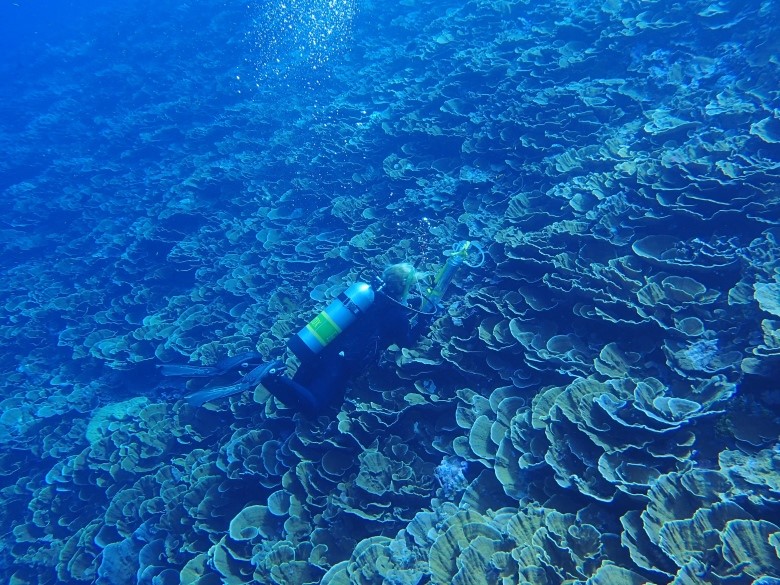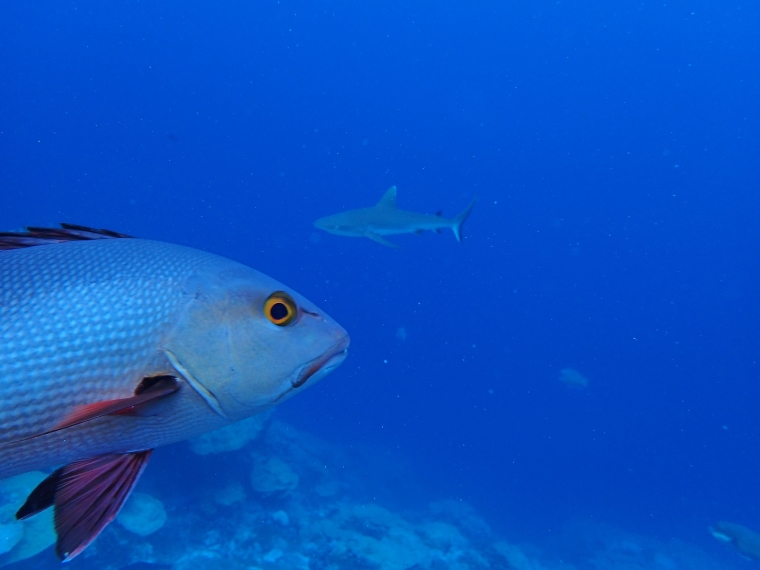A Global Enterprise: SDSU research around the world
From Mexico to Vietnam, SDSU research is making a difference globally

This spring, SDSU achieved Research 1 (R1) status, signifying its place among the top research universities in the United States.
The designation adds to the university’s prestige, potentially attracting more researchers and industry partners, as well as more opportunities for students to participate in innovative research.
To commemorate, SDSU Magazine profiled 10 SDSU faculty conducting research around the world. From uncovering hard-to-find earthquake faults in Eastern Ecuador to studying early humans in South Africa, these researchers are tackling critical challenges worldwide. Below is a sample of one of the profiles. Read the full story in the digital version of SDSU Magazine.
 Open the image full screen.
Open the image full screen.Restoring Coral Reefs
Forest Rohwer, professor of biology
Location: Line Islands, south of Hawaii
The Rohwer Lab studies the viruses and bacteria that live on the coral reefs of the Pacific Ocean, including the Line Islands south of Hawaii. A cornerstone of this work is comparing pristine reefs with those impacted by local and global stressors. Overfishing, a local stressor, reduces grazing on algae. Without big fish grazing, algae start to feed the bacteria. The fat-and-happy bacteria use up the oxygen and eventually choke the corals. The work in the remote Pacific shows that reefs with a lot of big fish are also more resilient to heat waves, the primary global stressor.
To help corals bounce back on overfished reefs, the Rohwer Lab is building floating structures called Coral Reef Arks.
“The corals are suffocating on the bottom,” Rohwer says. “So, we float the corals up in the water on these structures, and we test to see if we get healthier corals. The answer is yes.”
Read More Here in SDSU Magazine.

